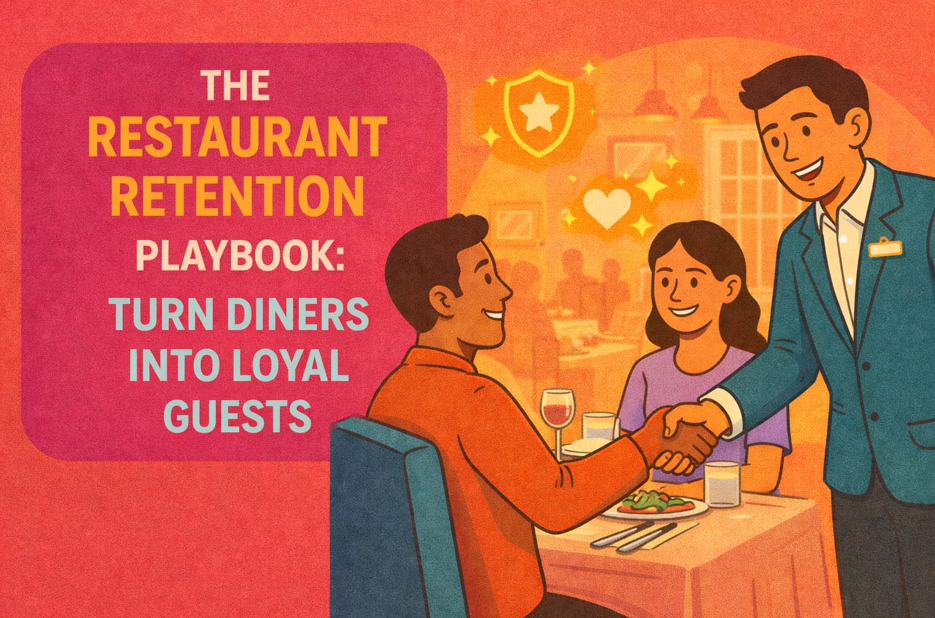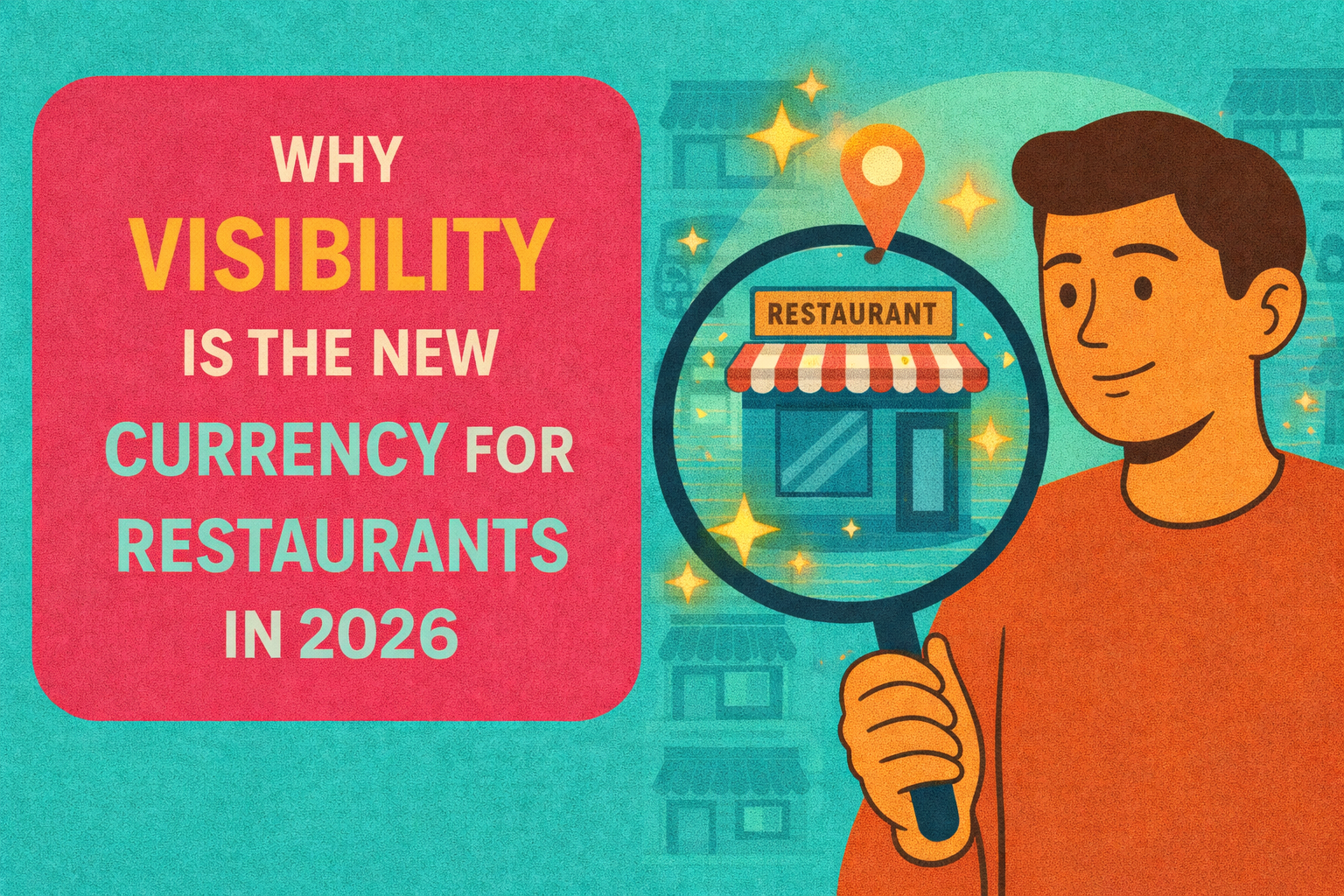In today’s digital-first world, having an exceptional dining experience is not enough. To succeed, restaurants must implement effective restaurant marketing strategies to ensure they remain visible online. Many restaurant owners unknowingly make critical mistakes that limit their reach, impact customer engagement, and reduce bookings. This blog explores the top ten mistakes that hurt your restaurant’s online visibility and actionable solutions to fix them.
1. Ignoring Google My Business (GMB) Optimization
Why It Matters
Google My Business for restaurants is a powerful tool that enhances local search rankings and provides potential customers with essential details such as location, hours, and reviews.
How to Fix It
- Claim and verify your GMB listing
- Ensure your restaurant’s name, address, and phone number (NAP) are accurate
- Add high-quality images and videos
- Regularly update posts, promotions, and events
- Encourage customers to leave positive reviews
2. Poor Website Design & SEO Issues
Why It Matters
A slow, outdated, or non-mobile-friendly website can turn potential diners away. Additionally, ignoring SEO for food businesses can make it difficult for your restaurant to rank on search engines.
How to Fix It
- Use a mobile-responsive website design
- Optimize loading speed with compressed images
- Implement local SEO strategies, including keywords like “best restaurants near me”
- Add an easy-to-navigate menu with clear CTA buttons (e.g., “Book a Table”)
3. Lack of Social Media Presence & Engagement
Why It Matters
Restaurant social media marketing is crucial for engaging with customers, promoting events, and enhancing brand visibility. A dormant or inconsistent social media presence can hurt your online reputation.
How to Fix It
- Create a social media calendar with consistent posts
- Share behind-the-scenes content, chef stories, and customer testimonials
- Use Instagram and Facebook ads for restaurants to target local diners
- Engage with customers by responding to comments and messages promptly
4. Not Utilizing User-Generated Content (UGC)
Why It Matters
Customers trust content created by other diners more than traditional advertising. Restaurant influencer marketing and UGC help build credibility and attract new customers.
How to Fix It
- Encourage customers to tag your restaurant in their posts
- Feature UGC on your website and social media
- Partner with local food bloggers for authentic reviews
5. Neglecting Online Reviews & Reputation Management
Why It Matters
A restaurant with negative or no reviews struggles to build trust. Google reviews impact SEO rankings and customer decisions.
How to Fix It
- Actively request reviews from happy customers
- Respond to both positive and negative reviews professionally
- Address customer complaints publicly and offer solutions
6. Weak Email Marketing Strategies
Why It Matters
Email marketing is a cost-effective way to retain customers and promote special offers. Ignoring this channel leads to missed engagement opportunities.
How to Fix It
- Build an email list through website sign-ups and in-house promotions
- Send exclusive discounts, menu updates, and event invitations
- Personalize emails for better engagement
7. Not Running Paid Ads Effectively
Why It Matters
Without investing in Google ads for restaurants, you miss out on potential customers actively searching for dining options.
How to Fix It
- Run local PPC campaigns targeting keywords like “best Italian restaurant near me”
- Utilize Facebook and Instagram ads with location-based targeting
- A/B test different ad creatives to optimize performance
8. Ignoring Local SEO Strategies
Why It Matters
Local searches drive foot traffic. F&B local SEO strategies ensure your restaurant appears in “near me” searches.
How to Fix It
- Optimize website content with location-based keywords
- Get listed on local directories (Yelp, Zomato, TripAdvisor)
- Add structured data markup to help search engines understand your business
9. Posting Low-Quality Visual Content
Why It Matters
Food is visual, and best Instagram tips for restaurants include using high-quality images and videos to entice customers.
How to Fix It
- Invest in professional food photography
- Use bright, well-lit images and engaging reels
- Maintain a consistent aesthetic across platforms
10. Failing to Track Analytics & Adjust Strategy
Why It Matters
Without tracking restaurant marketing strategies, you won’t know what’s working.
How to Fix It
- Use Google Analytics to track website traffic
- Monitor engagement rates on social media
- Adjust strategies based on data insights
Conclusion
Avoiding these common mistakes can significantly improve your restaurant marketing strategies and online visibility. By optimizing your Google My Business for restaurants, enhancing your restaurant social media marketing, and leveraging paid ads, you can increase restaurant visibility online and attract more customers.
Ready to elevate your restaurant’s online presence? Contact the best marketing agency for restaurants to craft a tailored digital strategy!
FAQs
Use a mix of SEO, social media marketing, Google My Business, influencer collaborations, and paid ads to increase visibility.
Behind-the-scenes videos, chef interviews, user-generated content, promotions, and food photography perform well.
SEO for food businesses improves search rankings, making it easier for potential customers to discover your restaurant.
Optimize your website with clear CTAs, use social media promotions, and run Google ads for restaurants targeting local audiences.
Yes, Facebook and Instagram ads can significantly boost engagement and drive reservations by targeting relevant audiences.










1 thought on “Top Ten Mistakes That Hurt Your Restaurant’s Online Visibility & How to Fix Them”
Pingback: 7 Local SEO Tips to Rank Higher in “Best Restaurant Near Me” Searches - Mango Marketing Agency